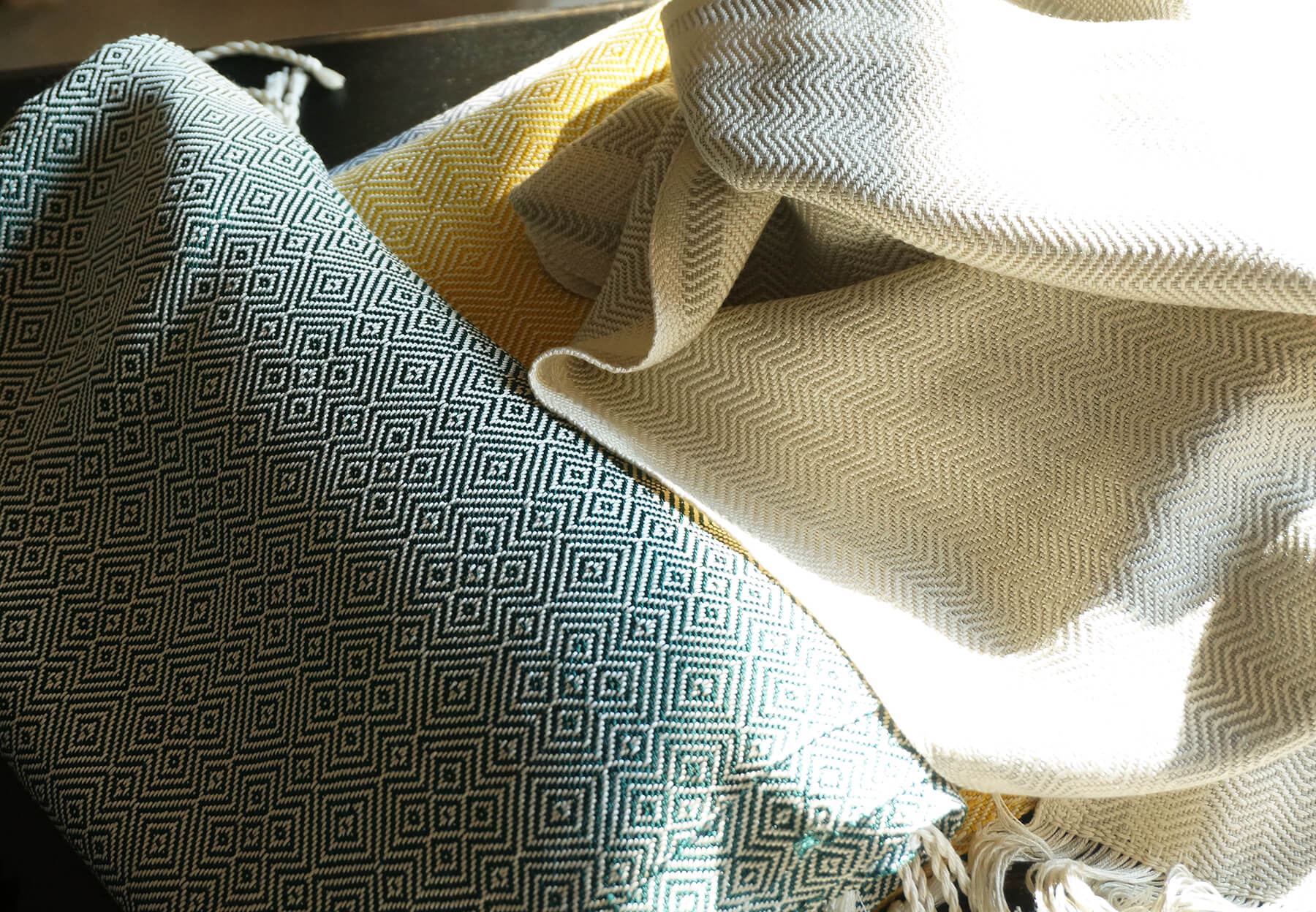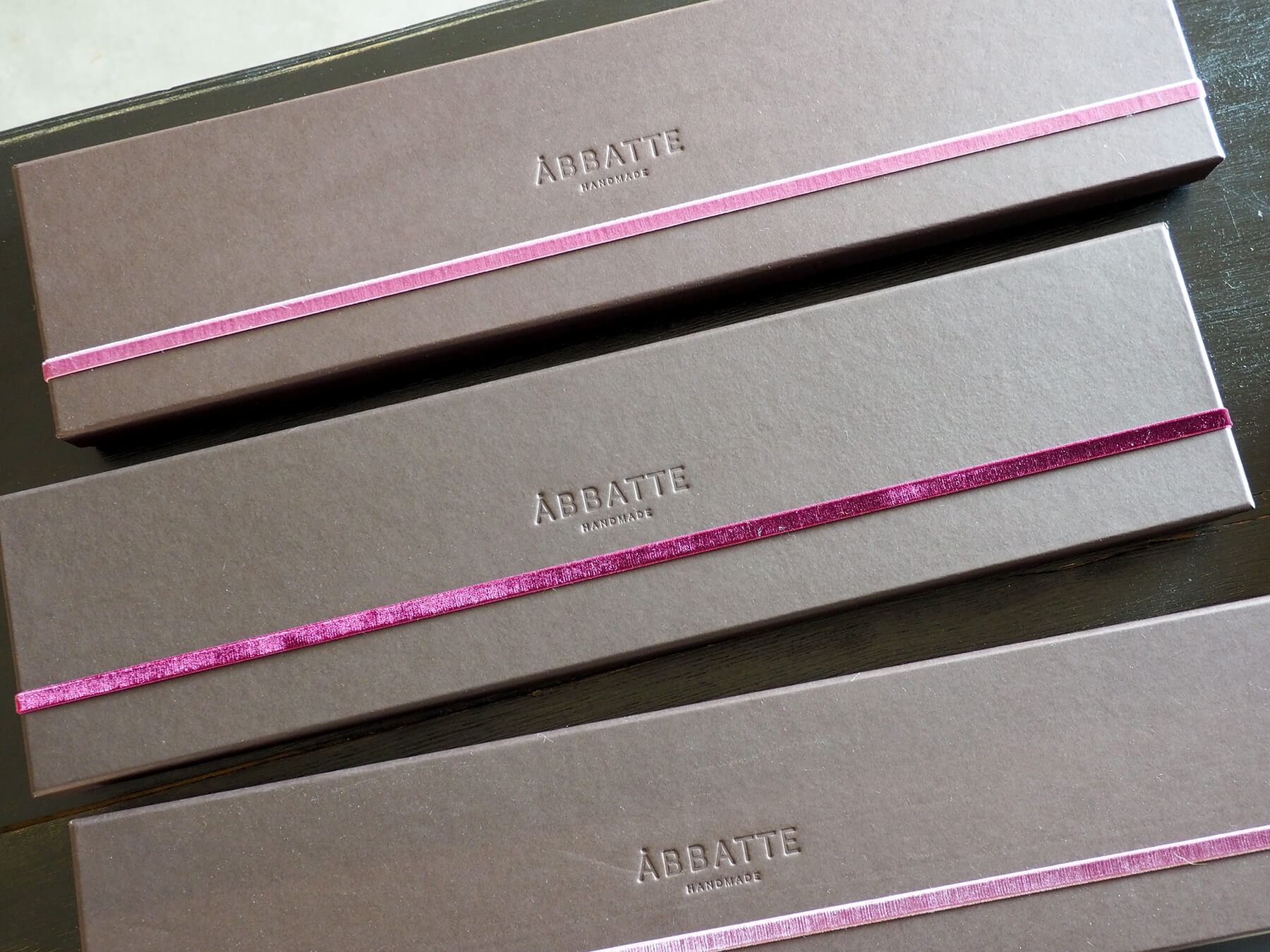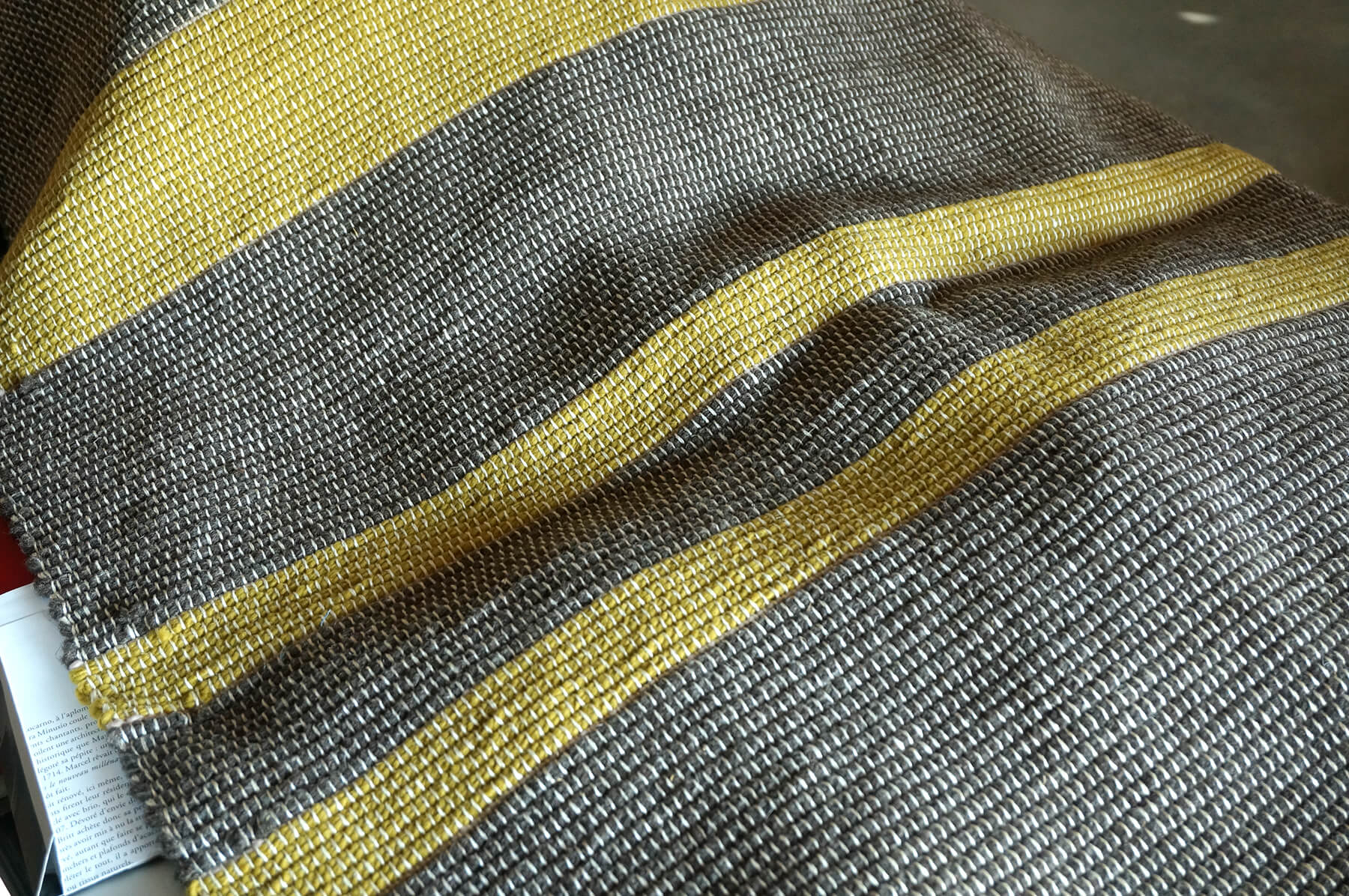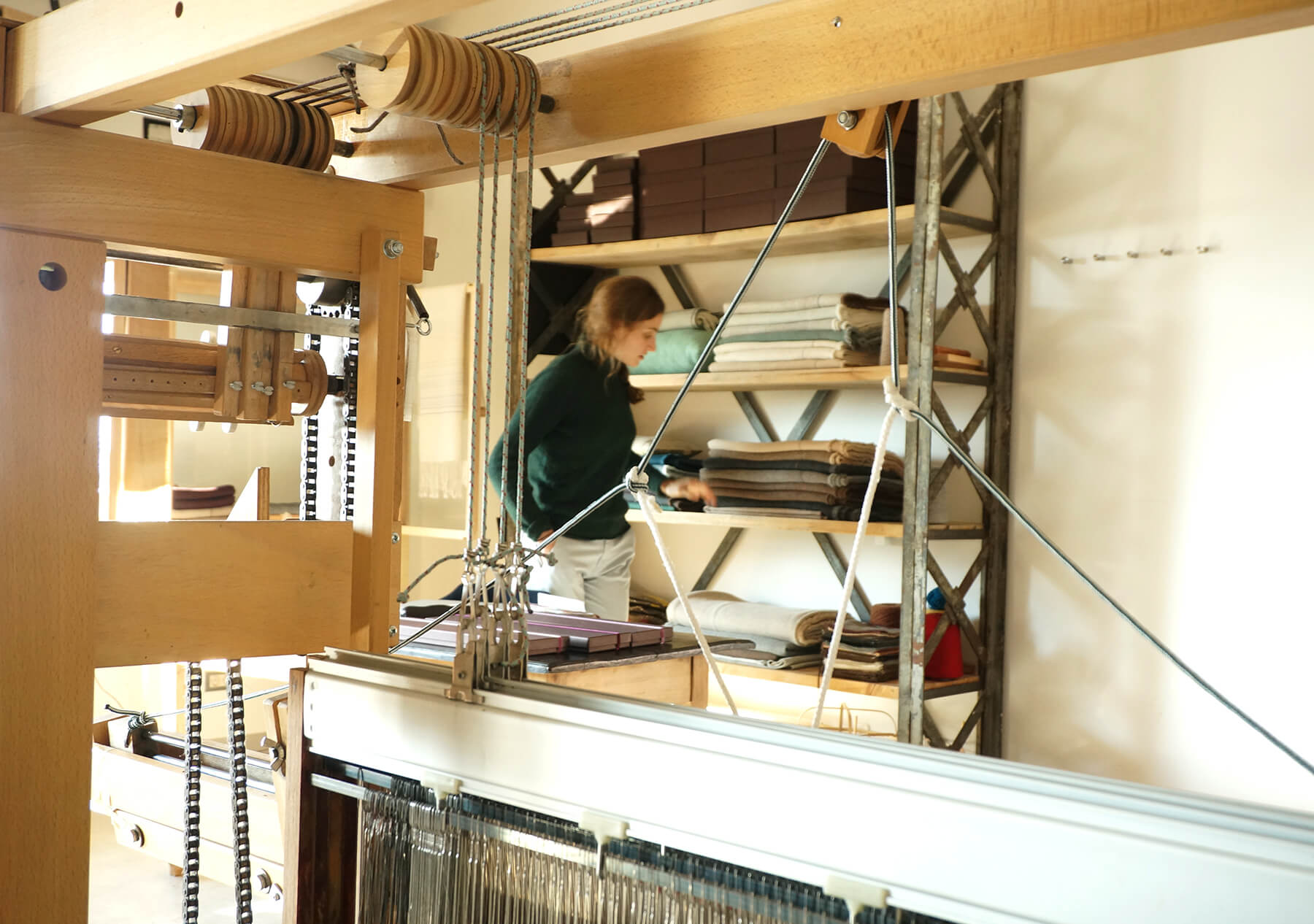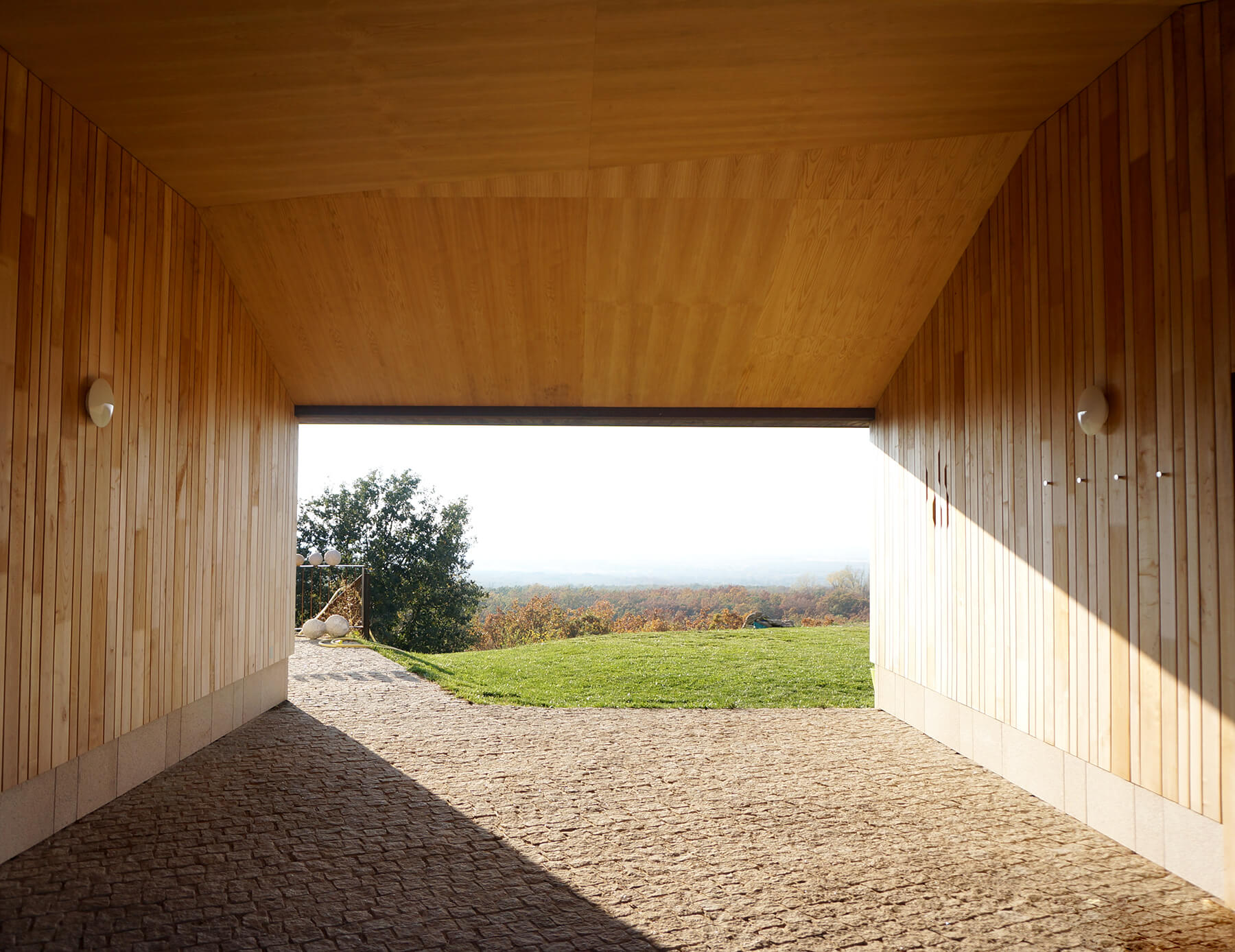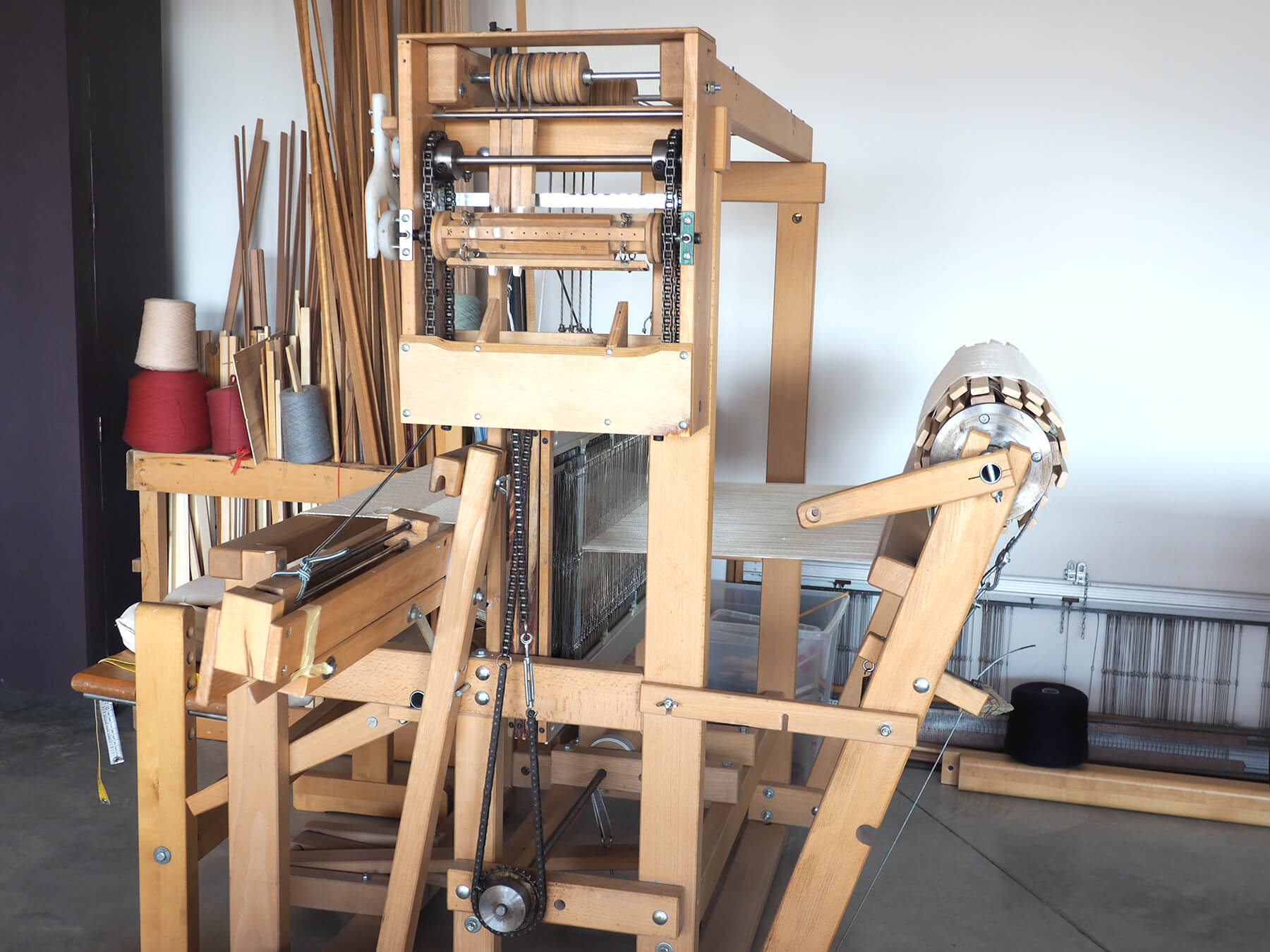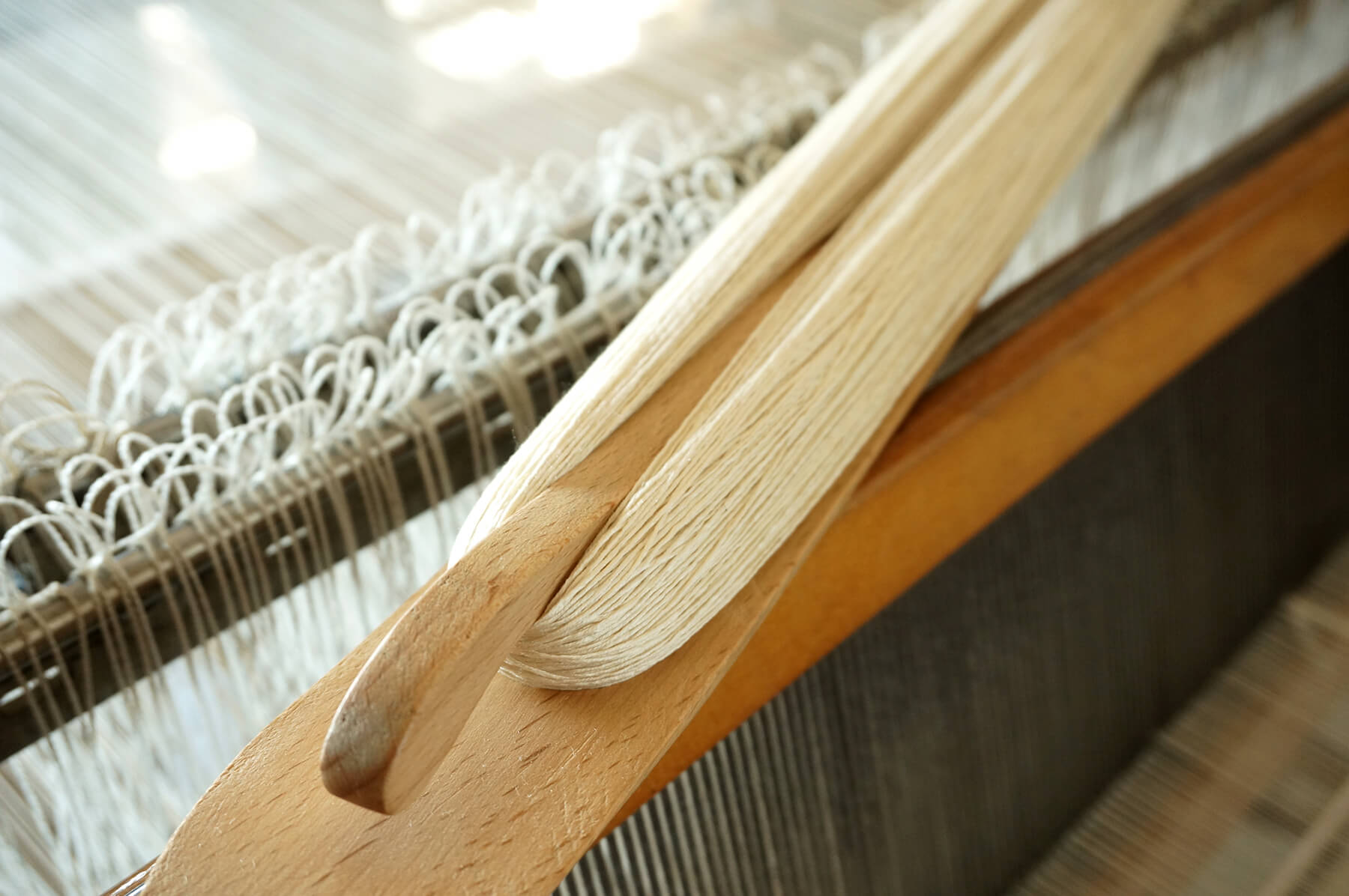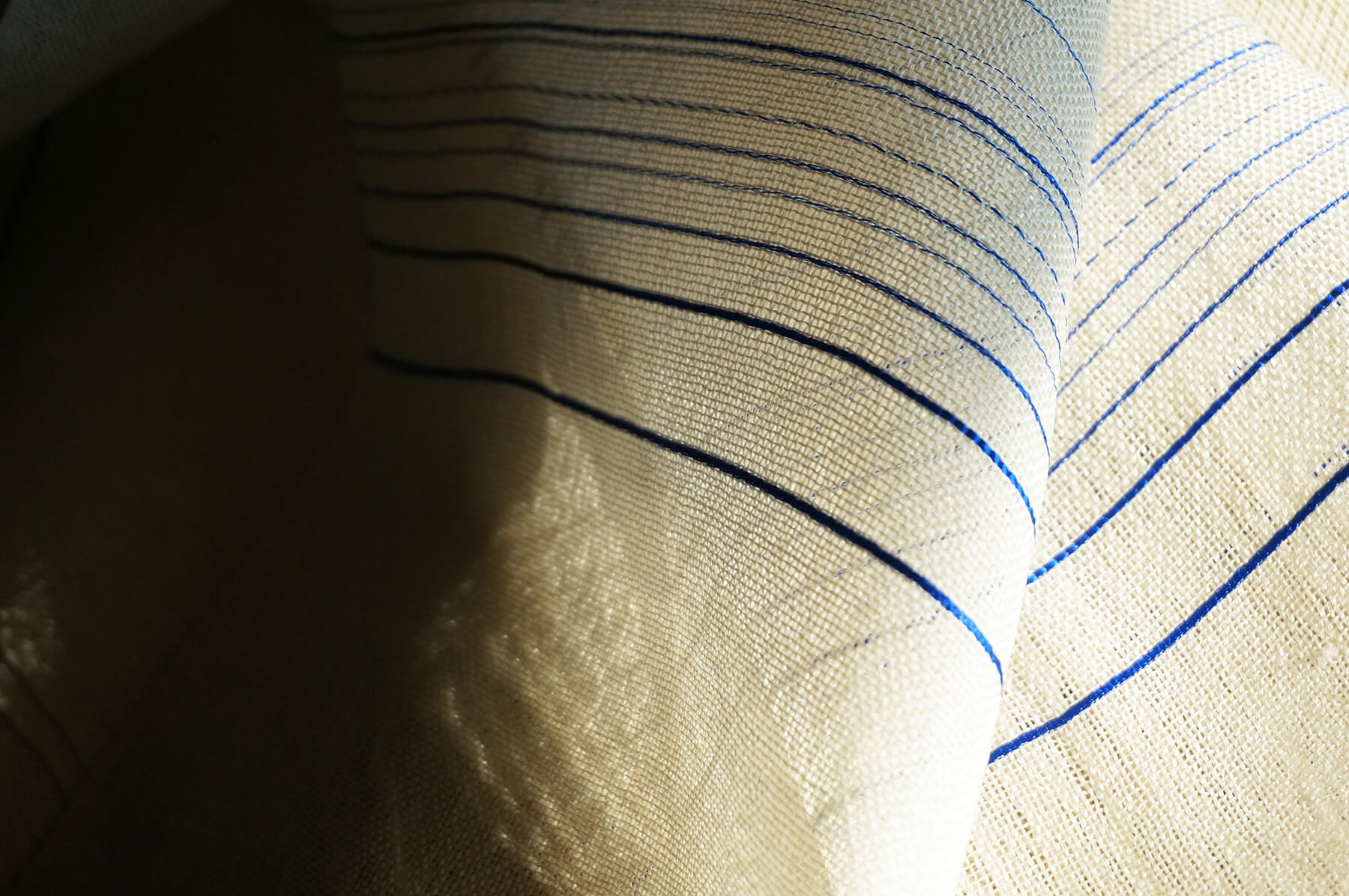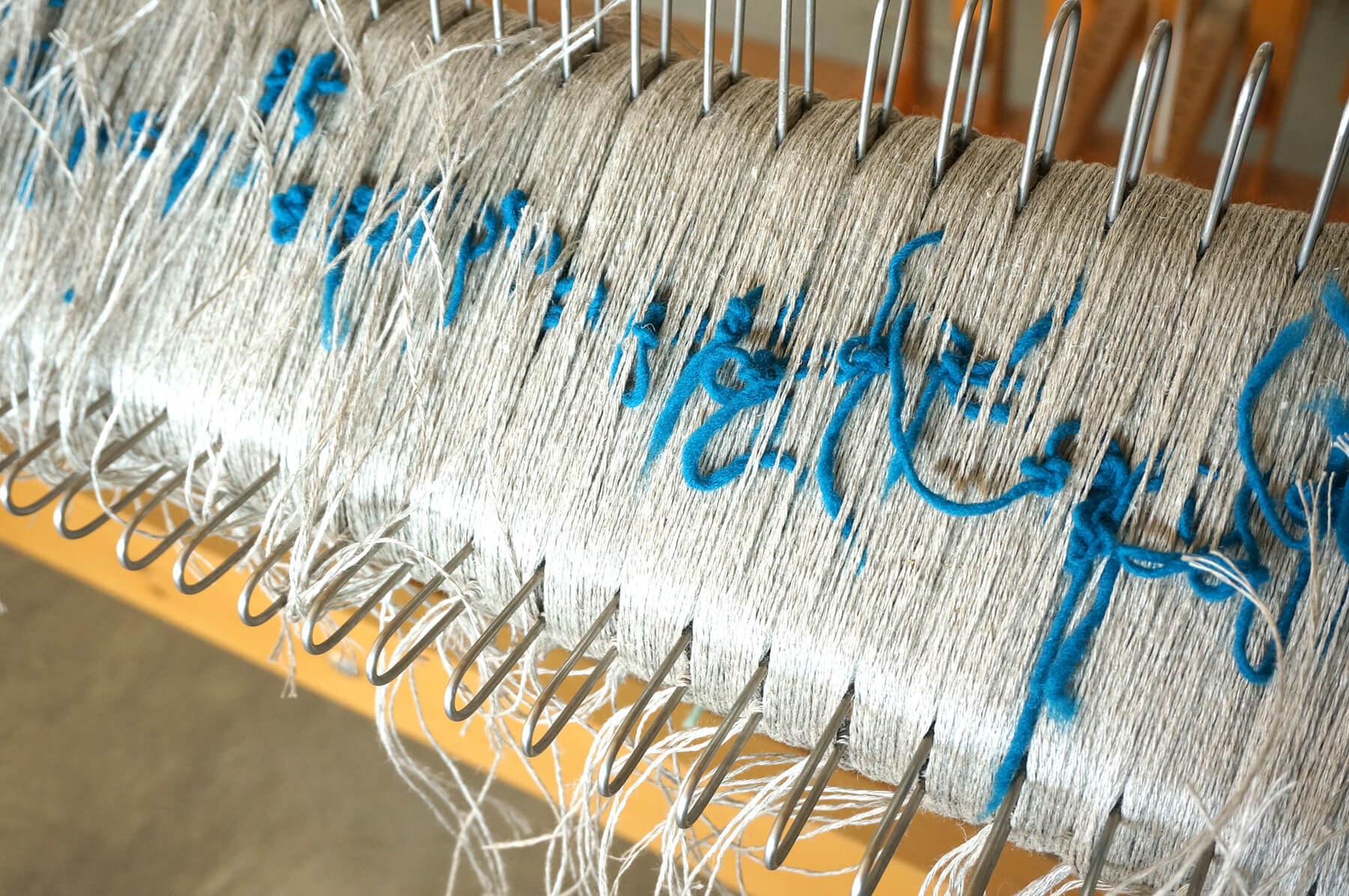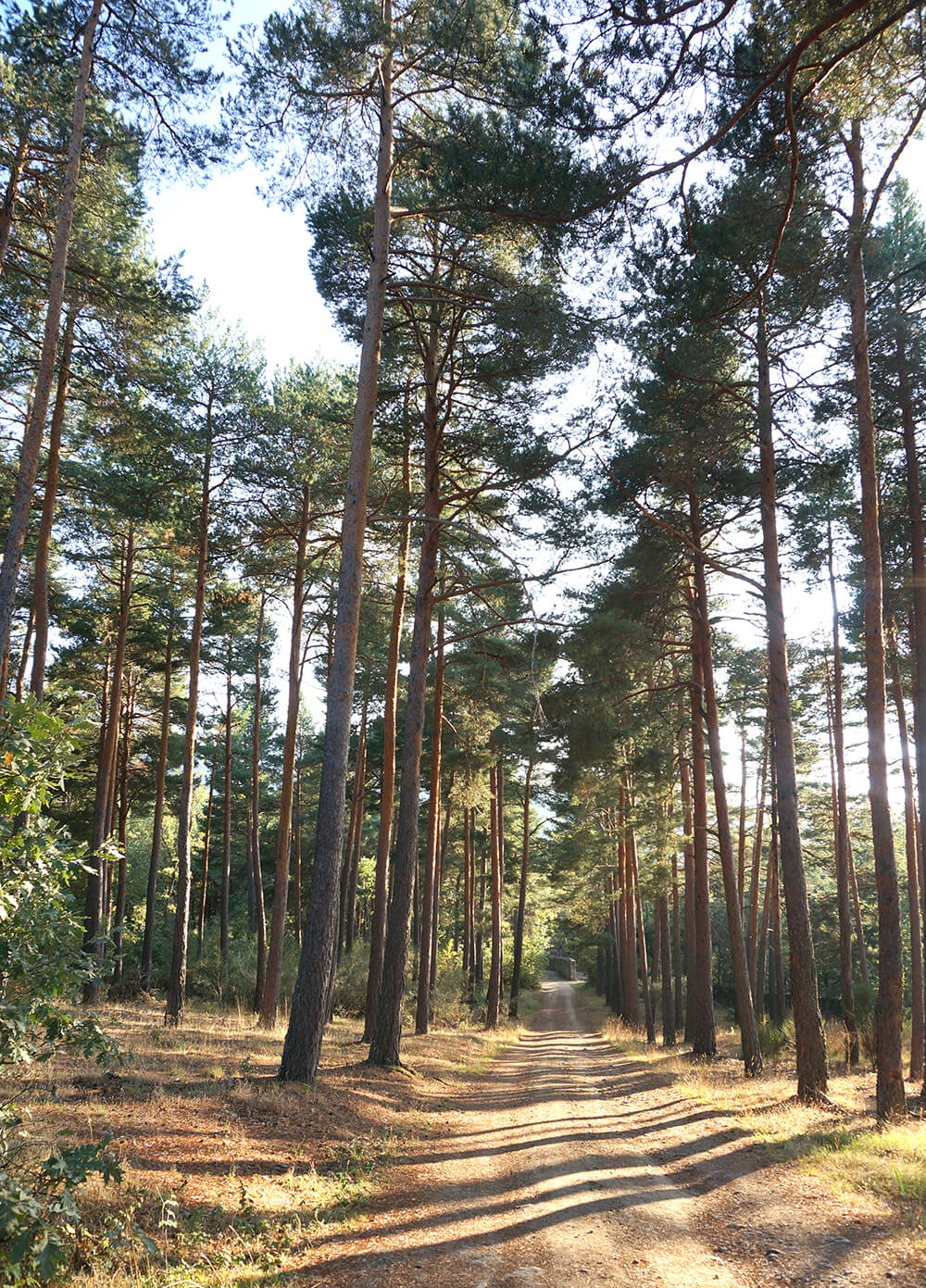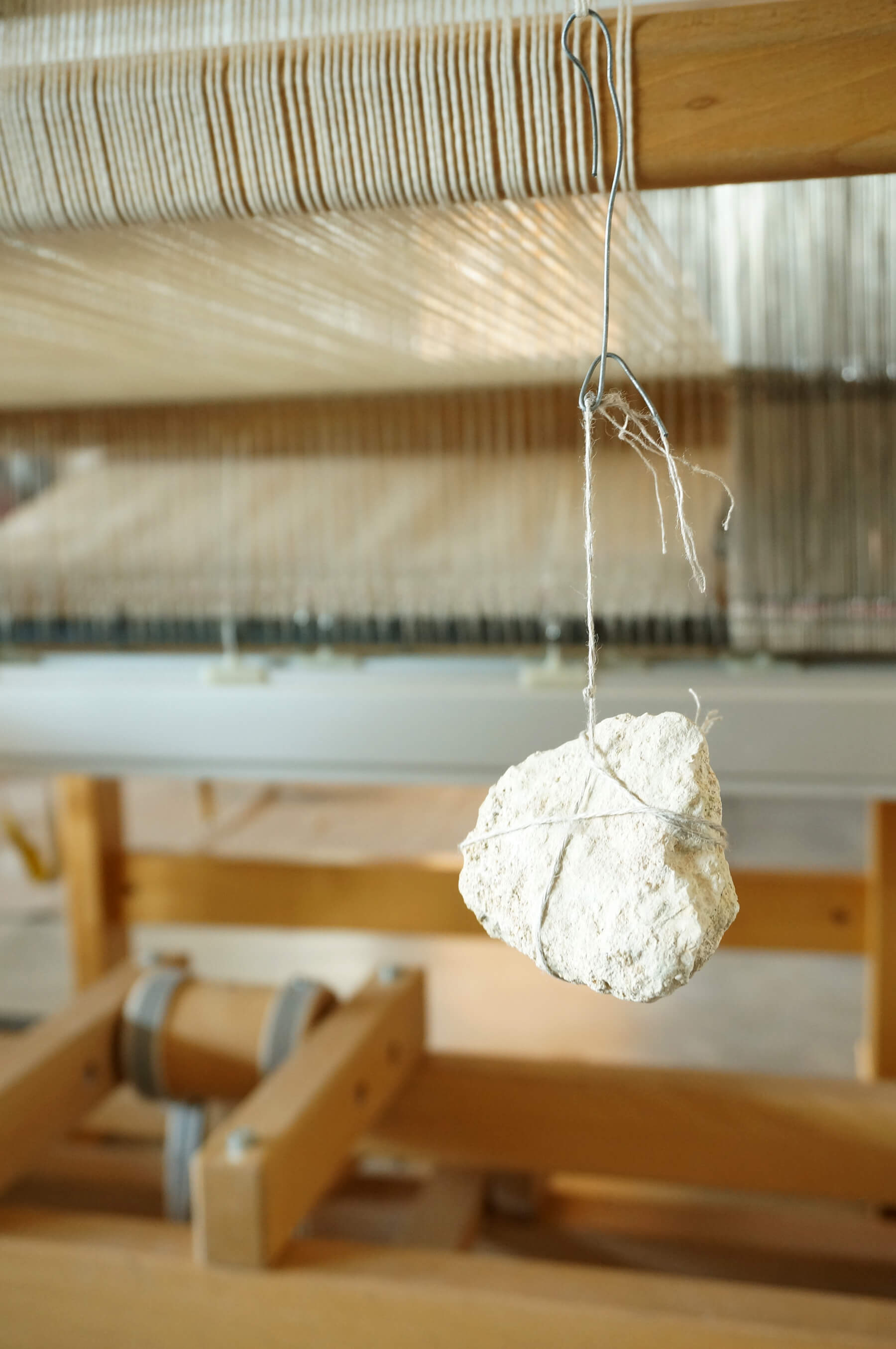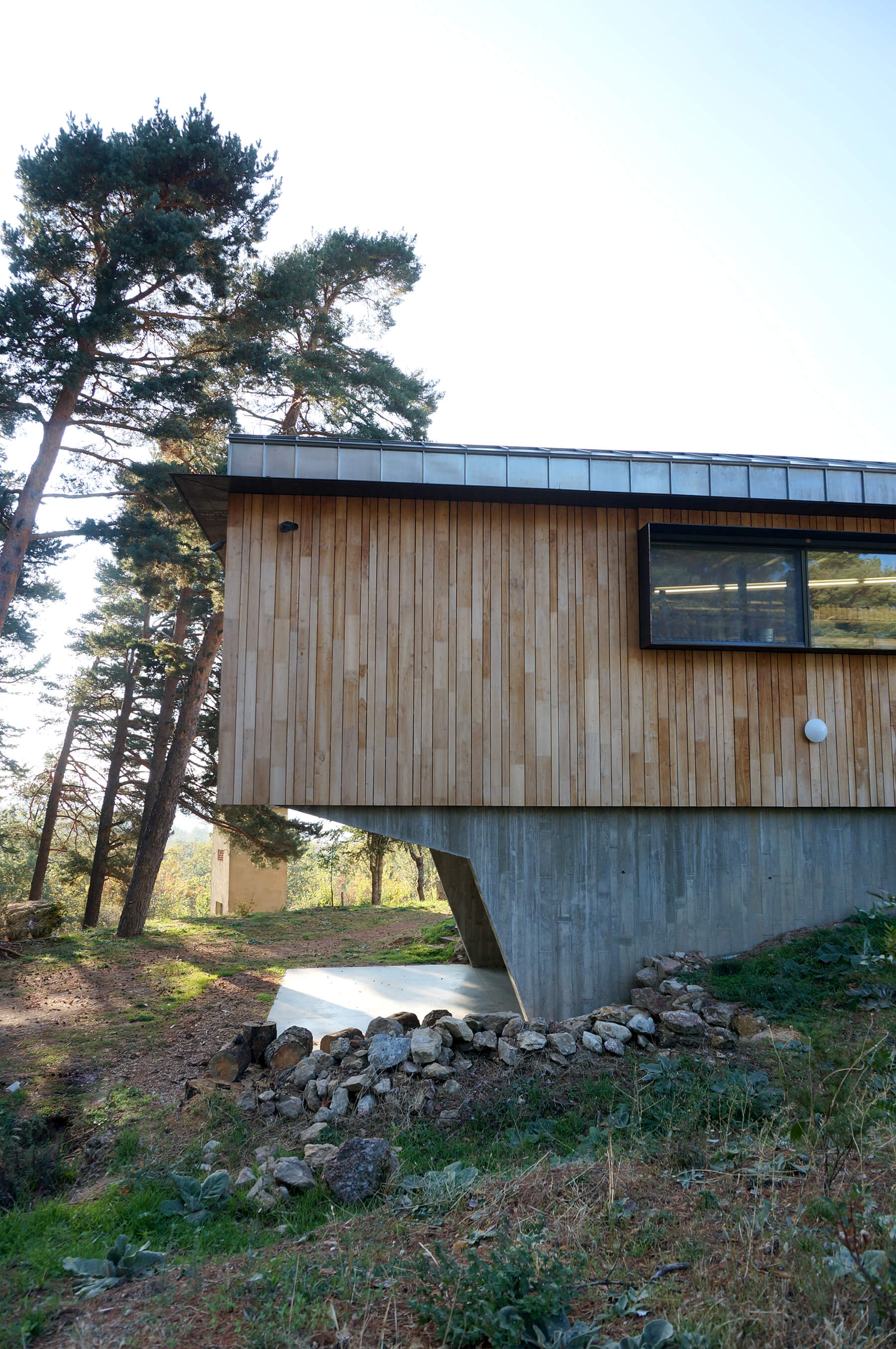Ábbatte
Elena Goded and her daughter, Camila Lanzas, are truly lucky. They are completely devoted to their dream, Ábbatte, a fairytale project that encompasses exquisite textile design in an ultra modern space, yet adjacent to a run-down 13th century monastery.
In the hills of Segovia, right above the woods of Collado Hermoso, lies the monastery of Santa María de la Sierra. What remains today is the result of years of restorative work not only to make the ruins safe, but to return them to their former glory. The architect Alberto Ballarín did an exceptional job with his vision of highlighting the building's charm and original stone textures. Two separate spaces are connected by a porch that helps to enhance and frame the spectacular valley view below.
One of the spaces is a workshop which houses magnificent looms and where the precious materials are stored. Here, local women with dexterous hands carefully weave the natural fibers.
The second space is used as a conference room that hosts the courses on textile design and natural dying techniques that Ábbatte organizes. Everything, from the bold planks of wood on the outside walls, to the raw floors, and the seemingly geometrically impossible ceilings, are a treat for the senses, and one understands how Elena and Camila both draw inspiration from their surroundings, and their very precise sensibilities.
Ábbatte makes shawls, blankets, rugs and more. To me they all represent the essence of rustic elegance, fabrics derived from natural wools, cottons and silks of the highest quality. Every product is individually handmade and washed before being packaged in beautiful solid boxes, adding the final touches to these valuable Ábbate treasures.
The fall sun was starting to dip below the horizon on the afternoon we visited Elena and Camila, and the leaves had started to turn ocre. Miguel Cerezales, who has helped create the dye flower garden - which includes plants used in the dying process itself - had warned me about the magic of this place. But it wasn’t until I experienced the candor of mother and daughter themselves, that I understood from where the magic truly originates.
The place is mind-blowing, to a degree which one can only really understand after seeing it first-hand. The way in which the overarching intent of the project is handled so delicately, is nothing less than inspiring. Camila has to tend to her teething baby, so we go off and wander through the ceilingless monastery, under arches and columns of incredible scale. With the mountains behind us, and while enjoying a stunning view from this once imposing edifice, the soul of this cared-for property literally immerses you, and you cannot help but feel lucky to have met these wonderful ladies.


